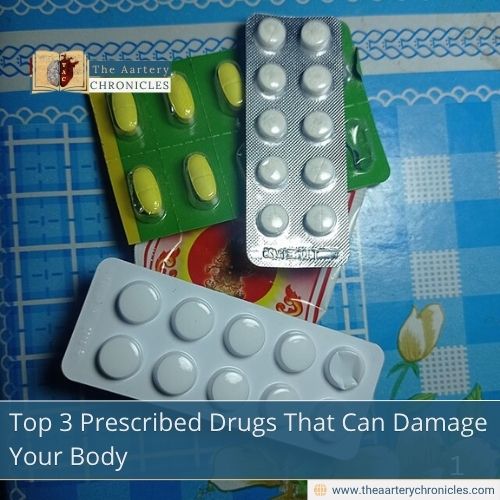

Top 3 Prescribed Drugs That Can Damage Your Body
Medicines are meant to heal, but not all of them are as safe as they appear. A growing concern in modern healthcare is that some of the most frequently prescribed drugs may actually be doing more harm than good when taken for a long time. Recently, experienced pharmacist Steve Hoffart shed light on three common medications patients should avoid, explaining why he personally stays away from them. His insights highlight hidden risks that both patients and doctors should keep in mind.
1. NSAIDs – Pain Relief With a Hidden Cost
Nonsteroidal anti-inflammatory drugs (NSAIDs) such as ibuprofen, naproxen, and celecoxib are some of the most widely used painkillers. They provide quick relief from headaches, muscle aches, or arthritis flare-ups. However, these drugs can quietly damage the body over time.
Long-term use of NSAIDs can:
- Irritate the stomach lining, causing ulcers, bleeding, and what experts call “leaky gut.”
- Increase strain on the kidneys, raising the risk of chronic kidney disease.
- Speed up cartilage breakdown, which may worsen joint damage and increase the likelihood of hip or knee replacements.
Instead of depending on these painkillers, many health practitioners recommend tackling inflammation at its root. Options such as omega-3 supplements, curcumin, magnesium, or dietary changes may help reduce pain naturally while protecting long-term health.
2. PPIs – The Acid Reflux Drugs That May Backfire
Proton Pump Inhibitors (PPIs) like omeprazole and esomeprazole are often prescribed for heartburn and acid reflux. While they suppress acid and bring quick comfort, they may not be the safest option in the long run.
Here’s why:
- Stomach acid is vital for digesting protein and absorbing nutrients such as vitamin B12, iron, and magnesium. PPIs reduce this acid, which can lead to nutrient deficiencies.
- Over time, these deficiencies may cause fatigue, anaemia, and osteoporosis due to weaker bones.
- Studies also suggest possible links between chronic PPI use and higher risks of dementia and infections.
Interestingly, not all heartburn is caused by excess acid. In some cases, it’s due to low stomach acid or food sensitivities. Alternatives such as probiotics, apple cider vinegar, and identifying dietary triggers can often provide safer relief without completely shutting down acid production.
3. Statins – More Than Just Cholesterol Lowering
Statins are a standard prescription for lowering cholesterol. But cholesterol itself isn’t always the main problem—it’s how cholesterol interacts with inflammation in the body.
Potential downsides of statins include:
- Lowering levels of CoQ10 and vitamin D, which are vital for energy and muscle function. This explains why many patients report muscle pain and weakness.
- An increased risk of type 2 diabetes, memory issues, and hormonal imbalances with long-term use.
Instead of focusing only on lowering cholesterol numbers, experts now encourage advanced blood tests such as ApoB and oxidised LDL to measure real risk. At the same time, lifestyle changes like a fibre-rich diet, regular exercise, stress control, and quality sleep play a key role in maintaining healthy cholesterol. Natural compounds such as omega-3s, bergamot, and berberine may also help regulate cholesterol without the same risks.
Conclusion
The key takeaway from Hoffart’s advice is not to fear all medications; many are lifesaving in emergencies, but to be cautious about relying on certain drugs for long-term use. These three common medications patients should avoid may solve immediate problems, but they can create new health issues when taken for years.
By identifying the root cause of pain, acidity, or cholesterol imbalance and supporting the body with nutrition, lifestyle improvements, and safer alternatives, patients can often achieve better long-term health without unnecessary side effects.
Source: Inputs from various media Sources
I’m a pharmacist with a strong background in health sciences. I hold a BSc from Delhi University and a pharmacy degree from PDM University. I write articles and daily health news while interviewing doctors to bring you the latest insights. In my free time, you’ll find me at the gym or lost in a sci-fi novel.
- Priya Bairagi
- Health News and Updates,People Forum
- 4 October 2025
- 20:00








